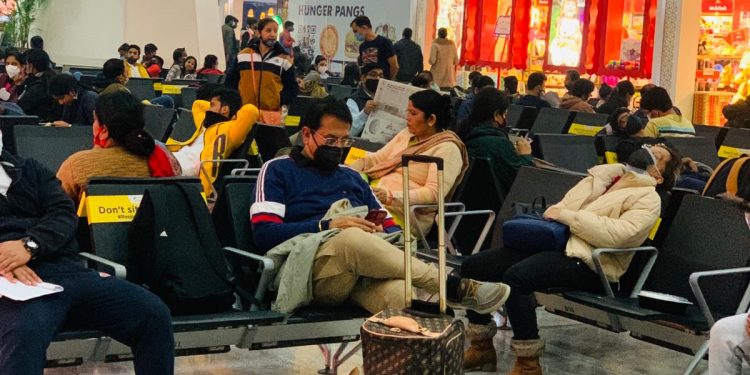South Africa has taken a monumental step to strengthen its relationship with India by simplifying visa procedures for Indian travellers. Introducing a digital Entry Travel Agreement (ETA) system and a Trusted Tour Operator Scheme marks a pivotal moment for tourism and economic relations between the two nations. These measures aim to attract more Indian visitors while fostering closer cultural and economic ties.
Visa Simplification: A Strategic Move
Under the leadership of Tourism Minister Patricia de Lille, the South African government has prioritized easing entry for Indian tourists. This move comes in response to longstanding challenges associated with visa processing, such as excessive paperwork and lengthy wait times. By consolidating visa requirements and introducing the ETA system, South Africa aims to transform its tourism sector and establish itself as a top destination for Indian travelers.
Key Features of the Simplified Visa Process:
- Digital Entry Travel Agreement (ETA): The ETA system replaces the cumbersome e-visa process, streamlining approvals and reducing application times.
- Reduced Documentation: Indian travellers will now need to submit only three essential documents for visa applications, making the process more user-friendly.
- Trusted Tour Operator Scheme: This program facilitates bulk visa processing for organized tour groups from India and China, significantly reducing entry barriers.
The initiative signals South Africa’s commitment to leveraging tourism as a driver of economic recovery post-COVID-19 while ensuring a seamless travel experience for visitors.
Trusted Tour Operator Scheme: Enhancing Group Travel
The Trusted Tour Operator Scheme is a game-changer for group travel, targeting large delegations from India and China. Tour operators who qualify under this scheme can process visas in bulk, making South Africa an even more attractive destination for group tourism. As of now, 23 Indian tour operators have applied to be part of this program, underscoring its appeal and potential to boost tourist arrivals.
This scheme also benefits travellers by offering:
- Faster Visa Approvals: Group processing reduces individual wait times.
- Convenience for Families and Organizations: Group travel becomes more accessible and efficient.
- Promotion of Tourism Packages: Tour operators can offer comprehensive travel packages tailored to Indian tourists.
Restoring Air Connectivity: A Critical Component
One of the most significant challenges for Indian travelers to South Africa has been the lack of direct flights. Since 2015, Indian visitors have relied on connecting flights through Middle Eastern or African hubs, increasing travel time and costs. Recognizing this issue, Minister de Lille has initiated discussions with major Indian airlines such as Air India, IndiGo, and SpiceJet to explore the feasibility of direct flights between Mumbai and Johannesburg.
Expected Benefits of Restoring Direct Flights:
- Increased Convenience: Direct flights eliminate layovers, making South Africa more accessible to Indian tourists.
- Cost Efficiency: Reduced travel time and layover costs could attract budget-conscious travellers.
- Boost to Tourism and Trade: Enhanced connectivity facilitates not just tourism but also business and trade relations.
The restoration of direct air routes is seen as a critical step in revitalizing South Africa’s tourism industry and strengthening its position as a preferred destination for Indian travelers.
Why Indian Tourists Matter to South Africa
India is one of the fastest-growing outbound tourism markets in the world. With a burgeoning middle class and increasing disposable income, Indian travellers are exploring international destinations more than ever. South Africa, with its diverse landscapes, wildlife, and cultural heritage, is uniquely positioned to capture this growing market.
Economic Potential of Indian Tourists:
- High Spending Power: Indian travellers are known for their spending on luxury accommodations, shopping, and experiences.
- Interest in Unique Experiences: Activities like safari tours, wine tasting, and adventure sports appeal to Indian tourists.
- Year-Round Travel: Indian travellers tend to travel throughout the year, offering consistent revenue streams for the tourism sector.
Economic and Cultural Impact
The simplified visa process and improved connectivity are expected to have far-reaching economic and cultural impacts.
Economic Growth:
- Boost to the Tourism Sector: Increased tourist arrivals contribute to South Africa’s GDP and create jobs in the tourism and hospitality industries.
- Strengthened Trade Ties: Easier travel facilitates business exchanges, enhancing trade relations between the two nations.
- Increased Investments: The growing influx of Indian tourists and businesses could encourage Indian investors to explore opportunities in South Africa.
Cultural Exchange:
- Strengthening People-to-People Ties: Tourism fosters mutual understanding and appreciation of each other’s cultures.
- Celebrating Shared Histories: Both nations have a history of fighting colonialism and share a strong commitment to multiculturalism.
Challenges and Solutions
While the new initiatives are promising, there are challenges that South Africa must address to ensure their success.
Challenges:
- Infrastructure Readiness: Airports, hotels, and tourist facilities must be prepared to handle an influx of visitors.
- Public Awareness: Indian travelers need to be made aware of the new visa procedures and travel options.
- Consistency in Implementation: Ensuring that all South African missions abroad uniformly implement the simplified process is critical.
Proposed Solutions:
- Investments in Infrastructure: Upgrading facilities to meet international standards.
- Marketing Campaigns: Launching targeted campaigns in India to promote South Africa as a tourist destination.
- Training for Consulates: Providing training to consulate staff to ensure smooth processing of visas.
What This Means for Bilateral Relations
The introduction of these initiatives reflects the growing strategic partnership between South Africa and India. Both nations are members of BRICS (Brazil, Russia, India, China, and South Africa) and have collaborated on various global issues, including trade, climate change, and healthcare. The simplified visa process is yet another step in deepening this relationship.
Key Areas of Collaboration:
- Tourism Diplomacy: Enhancing people-to-people connections through tourism.
- Economic Integration: Promoting bilateral trade and investment.
- Cultural Exchange Programs: Encouraging collaborations in arts, education, and sports.
Voices from the Ground
Feedback from travellers, tour operators, and businesses highlights the potential impact of these changes.
Indian Travelers: “The simplified visa process is a welcome change,” says Rohan Gupta, an IT professional planning a family vacation to South Africa. “It’s great to see South Africa making efforts to attract Indian tourists.”
Tour Operators: “The Trusted Tour Operator Scheme is a game-changer for us,” says Meena Sharma, a travel agency owner in Mumbai. “It allows us to offer better packages and encourage group travel.”
South African Businesses: “Indian tourists are vital for our economy,” says Jacob Moloi, a lodge owner near Kruger National Park. “We look forward to welcoming more visitors from India.”
Future Outlook
South Africa’s new initiatives mark the beginning of a transformative era for its tourism sector. By simplifying visa procedures and addressing connectivity challenges, the country is poised to attract a significant share of Indian travelers. However, success will depend on effective implementation, consistent communication, and continued collaboration between stakeholders.
As South Africa strengthens its ties with India, the benefits are likely to extend beyond tourism, fostering a deeper, more integrated partnership that addresses shared goals of economic growth, cultural exchange, and global collaboration.











